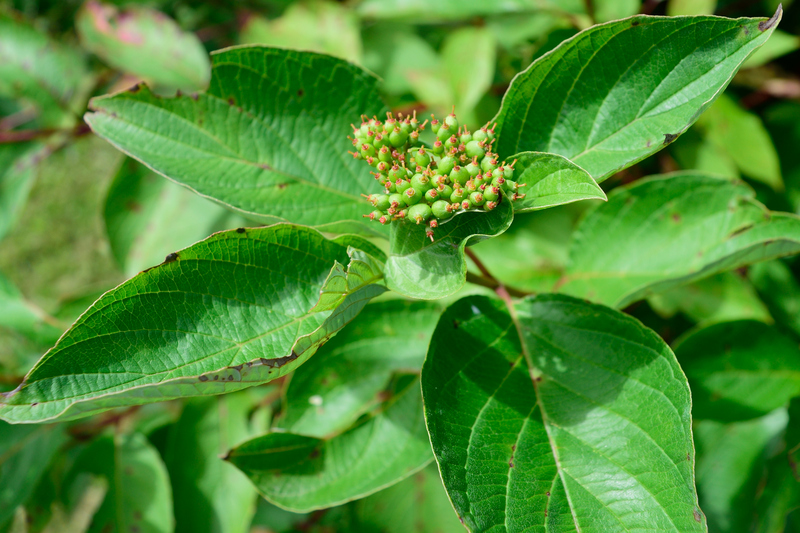Essential Supplies for Starting a Hydroponic Garden: A Beginner's Guide
Posted on 18/09/2024
With the rise in popularity of urban gardening and sustainable living, more and more people are turning to hydroponic gardening as a way to grow their own fresh produce. This method of gardening involves growing plants without soil, using mineral-rich water instead. Not only is it a more efficient way to grow plants, but it also allows for year-round cultivation regardless of climate or location. If you're considering starting your own hydroponic garden, there are some essential supplies that you will need to ensure a successful and bountiful harvest. In this guide, we will discuss the necessary equipment and tools for beginners to get started with hydroponic gardening.
What is Hydroponic Gardening?
Before we dive into the essential supplies needed for a hydroponic garden, it's important to understand what exactly this type of gardening entails. Hydroponics is a method of growing plants without soil, using nutrient-rich water instead. The plants are typically grown in a controlled environment such as a greenhouse or indoors using artificial light sources. The water used in hydroponics is continuously recirculated, providing the plants with all the necessary nutrients and oxygen they need for healthy growth. This method of gardening offers several benefits including higher yields, faster growth rates, and minimal use of water and space.

Essential Supplies for Starting a Hydroponic Garden
1. Growing Container: The first essential supply you will need for your hydroponic garden is a growing container. This can be any type of container that can hold water such as plastic buckets, bins or even recycled containers like soda bottles or milk jugs.
2. Nutrient Solution: Since hydroponic gardening relies on nutrient-rich water instead of soil, you will need to invest in a quality nutrient solution specifically designed for hydroponics. These solutions contain all the essential minerals and nutrients that plants need for healthy growth.
3. Growing Medium: While plants in a traditional garden get their nutrients from the soil, hydroponic plants rely on a growing medium to support their roots. Popular options for growing mediums include perlite, vermiculite, or coconut coir, as they provide good drainage and aeration for the roots.
4. Water pH Tester: Maintaining the proper pH level for the nutrient solution is crucial for the health of your plants. Invest in a water pH tester to ensure that the pH level is between 5.5-6.5 which is the optimal range for most plants.
5. Lighting System: As mentioned earlier, hydroponic gardening is often done indoors or in greenhouses where natural light may not be sufficient. A good lighting system is essential for providing your plants with the necessary amount of light for photosynthesis and growth.
6. Water Pump: The continuous circulation of water is vital for hydroponic gardening. A water pump helps to keep the nutrient solution moving and ensures that all plants receive an equal amount of nutrients.
7. Timer: It's important to maintain a consistent schedule for watering and feeding your plants in a hydroponic garden. A timer can help you automate this process, ensuring your plants get the right amount of water and nutrients at the right time.
Tips for Starting a Successful Hydroponic Garden
- Start small: If you're new to hydroponic gardening, it's best to start small and gradually expand as you gain experience.
- Keep it simple: Stick to simple setups and do not get overwhelmed by complicated systems.
- Select appropriate plants: Choose plant varieties that are suitable for hydroponic gardening such as leafy greens, herbs, and some fruits like strawberries.
- Research growing techniques: Hydroponics offers various growing techniques like deep water culture or ebb and flow systems. Research these methods to find what works best for you and your plants.
- Monitor nutrient levels: Always keep an eye on the nutrient levels in your solution and adjust accordingly to avoid over or underfeeding your plants.
Pros and Cons of Hydroponic Gardening
Pros:
- Requires less space compared to traditional gardening
- Can be done year-round, regardless of weather conditions
- Use of minimal water means less wastage
- Higher yields and faster growth rates
- No weeds or pests to deal with
Cons:
- Initial setup costs can be higher than traditional gardening
- Requires monitoring and maintenance of nutrient levels
- Electricity usage for lighting and pumps may increase energy bills

Takeaways
Hydroponic gardening offers a sustainable, efficient, and innovative way of growing plants. While the initial investment may be significant, the long-term benefits make it worthwhile. With proper research, equipment, and techniques, even beginners can successfully start their own hydroponic garden.
Conclusion
Now that you know the essential supplies needed for starting a hydroponic garden, it's time to get started! Remember to start small, keep it simple, and continuously monitor the nutrient levels for a successful harvest. With patience, dedication, and the right supplies, your hydroponic garden will soon be flourishing with fresh produce. Happy gardening!
Latest Posts
Constructing a Delightful and Safe Garden for Young Adventurers
9 Proven Tips to Kickstart Your Gardening Experience
Transforming Your Garden with Clever Seating Area Ideas
Enrich Your Garden's Privacy with Speedy Growing Hedges
Evergreen Climbers for Shade: Turning Shadow into a Green Paradise

